第36章
This objection consists of two parts, which we shall examine separately; , that, if human actions can be traced up, by a necessary chain, to the Deity, they can never be criminal; on account of the infinite perfection of that Being from whom they are derived, and who can intend nothing but what is altogether good and laudable. Or, , if they be criminal, we must retract the attribute of perfection, which we ascribe to the Deity, and must acknowledge him to be the ultimate author of guilt and moral turpitude in all his creatures.
The answer to the first objection seems obvious and convincing. There are many philosophers who, after an exact scrutiny of all the phenomena of nature, conclude, that the W/HOLE, considered as one system, is, in every period of its existence, ordered with perfect benevolence; and that the utmost possible happiness will, in the end, result to all created beings, without any mixture of positive or absolute ill or misery. Every physical ill, say they, makes an essential part of this benevolent system, and could not possibly be removed, even by the Deity himself, considered as a wise agent, without giving entrance to greater ill, or excluding greater good, which will result from it. From this theory, some philosophers, and the ancient among the rest, derived a topic of consolation under all afflictions, while they taught their pupils that those ills under which they laboured were, in reality, goods to the universe; and that to an enlarged view, which could comprehend the whole system of nature, every event became an object of joy and exultation. But though this topic be specious and sublime, it was soon found in practice weak and ineffectual. You would surely more irritate than appease a man lying under the racking pains of the gout by preaching up to him the rectitude of those general laws, which produced the malignant humours in his body, and led them through the proper canals, to the sinews and nerves, where they now excite such acute torments. These enlarged views may, for a moment, please the imagination of a speculative man, who is placed in ease and security; but neither can they dwell with constancy on his mind, even though undisturbed by the emotions of pain or passion; much less can they maintain their ground when attacked by such powerful antagonists. The affections take a narrower and more natural survey of their object; and by an economy, more suitable to the infirmity of human minds, regard alone the beings around us, and are actuated by such events as appear good or ill to the private system.
The case is the same with as with
ill. It cannot reasonably be supposed, that those remote considerations, which are found of so little efficacy with regard to one, will have a more powerful influence with regard to the other. The mind of man is so formed by nature that, upon the appearance of certain characters, dispositions, and actions, it immediately feels the sentiment of approbation or blame; nor are there any emotions more essential to its frame and constitution. The characters which engage our approbation are chiefly such as contribute to the peace and security of human society; as the characters which excite blame are chiefly such as tend to public detriment and disturbance: Whence it may reasonably be presumed, that the moral sentiments arise, either mediately or immediately, from a reflection of these opposite interests. What though philosophical meditations establish a different opinion or conjecture; that everything is right with regard to the W/HOLE, and that the qualities, which disturb society, are, in the main, as beneficial, and are as suitable to the primary intention of nature as those which more directly promote its happiness and welfare? Are such remote and uncertain speculations able to counterbalance the sentiments which arise from the natural and immediate view of the objects? A man who is robbed of a considerable sum; does he find his vexation for the loss anywise diminished by these sublime reflections? Why then should his moral resentment against the crime be supposed incompatible with them? Or why should not the acknowledgment of a real distinction between vice and virtue be reconcileable to all speculative systems of philosophy, as well as that of a real distinction between personal beauty and deformity? Both these distinctions are founded in the natural sentiments of the human mind: And these sentiments are not to be controuled or altered by any philosophical theory or speculation whatsoever.
The objection admits not of so easy and satisfactory an answer; nor is it possible to explain distinctly, how the Deity can be the mediate cause of all the actions of men, without being the author of sin and moral turpitude. These are mysteries, which mere natural and unassisted reason is very unfit to handle; and whatever system she embraces, she must find herself involved in inextricable difficulties, and even contradictions, at every step which she takes with regard to such subjects. To reconcile the indifference and contingency of human actions with prescience; or to defend absolute decrees, and yet free the Deity from being the author of sin, has been found hitherto to exceed all the power of philosophy. Happy, if she be thence sensible of her temerity, when she pries into these sublime mysteries; and leaving a scene so full of obscurities and perplexities, return, with suitable modesty, to her true and proper province, the examination of common life; where she will find difficulties enough to employ her enquiries, without launching into so boundless an ocean of doubt, uncertainty, and contradiction!
* * * *